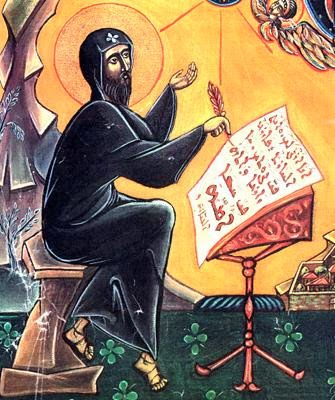Acts 10:25-26, 34-35, 44-48
Psalm 98:1-4
1 John 4:7-10
John 15:9-17
We must not pass over the amazing phrase that Jesus said, “As the Father loved me, I also loved you.” The love between God the Father and God the Son is the power that holds together the universe. The love between the Father and the Son is the Holy Spirit. God is love. So when Jesus says that he loves us, as the Father loves him, he is saying that he loves us unconditionally, completely, perfectly. This fact becomes the most important fact in our lives.
What should our reaction be? Jesus tells us. It should be to remain in his love. How do we do that? Jesus tells us. If we keep his commandments, we will remain in his love. What commandments? The 613 commandments of the Torah are distilled into the 10 commandments. Jesus simplifies this into the 2 commandments: love God and love your neighbor, which can be combined into the 1 commandment: Love. “This is my commandment,” Jesus says, “love one another as I love you.” So there is this progression of love. The Father loves the Son. The Son loves us as the Father loves him. We love others as the Son loves us.
It was Love that created humanity. And when we had fallen and needed a savior, it was Love that sent us Jesus. It was love that allowed Jesus to offer himself on the Cross. It was love that raised Jesus from the dead. Love is an active power in our world. Love is the measure of every action. We no longer need the other commandments to guide us away from danger and sin; we only need the commandment to love. Love is our guide through life. We will not go wrong if we deny all selfishness and follow love to the end. Love will never lead us astray.
Jesus commands us to love, and thereby implicitly denies the idea of love as an emotion, a feeling, an experience. He would not command us to feel love, to be in love. That would be impossible. He would not command us to have a particular emotion. Emotions and feelings cannot be commanded. Only actions can be commanded. Love then is an action verb.
What is love then? How does a person do the action of loving another? The action of love is threefold: to see the good in the other, to do good for the other, and to let the other love you. This describes all love, whether of a parent for a child, a husband for a wife, a person for their enemy, or a human for God. Step one: look and see the good. It is always there. God is good, and everyone whom God made is good. Step two: do good for the other. Jesus taught us how to do this by becoming a servant of the other. Step three: let the other love you, thereby acknowledging the inherent dignity of the other. God lets us love him, and that is our greatest joy. If we go out into the world and see someone in need and see the good in them and help them but do not do this last part of love, we are acting like aliens to them, placing ourselves above them, treating them like an animal.
We look to our perfect example of love, Jesus Christ. We must love one another as Jesus loved us. God is love. It was because of love that God sent his only Son. Everything that Jesus Christ did was an act of love. His life was pure love. The supreme moment of that life, and therefore the greatest example of love we possess, was the death of Jesus on the cross for our sins. “No one has greater love than this: to lay down his life for his friends.”
We will be the friend of Jesus if we do what he has commanded us. We will be a friend of Jesus (and talk about friends in high places) if we love him as he loves us. We must love him in every member of his Body, the Church. Jesus has proven his friendship with us. He has told us what the Father told him. He says that we are friends if we do what he has commanded of us. This is reasonable. If we have heard the Word of God Incarnate speak the Word of God, as spoken between the Father and the Son, what response could we possibly have to this generous gift but obedience?
St. John tells us in the second reading that what really matters about love is not that we have loved God, but that he has loved us. Love first comes from God. Love is the source of our existence. God loved us into being.
